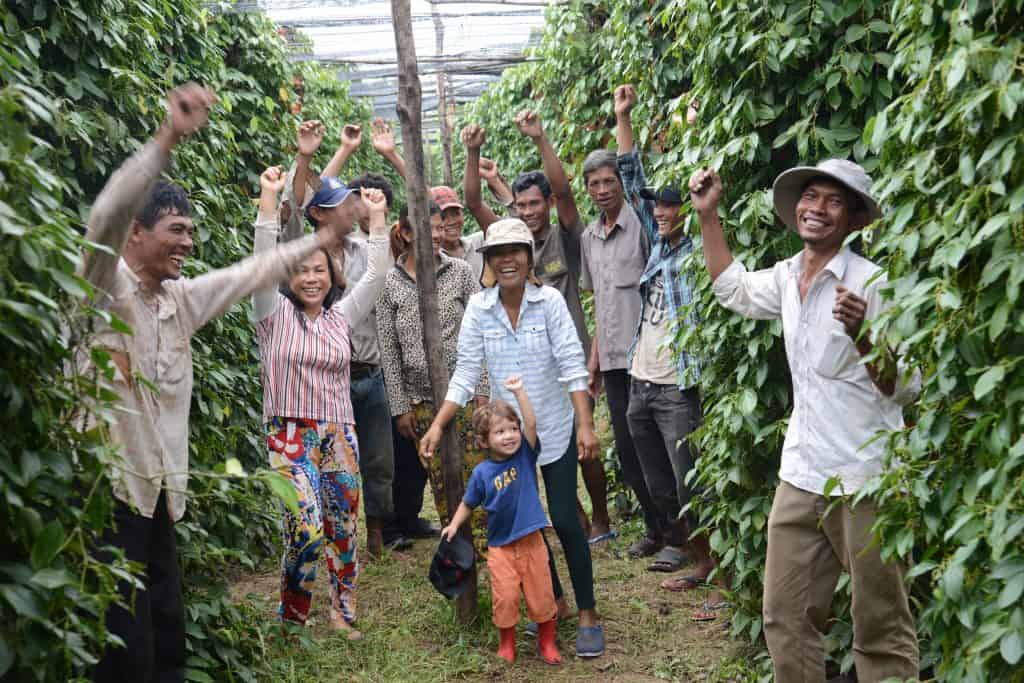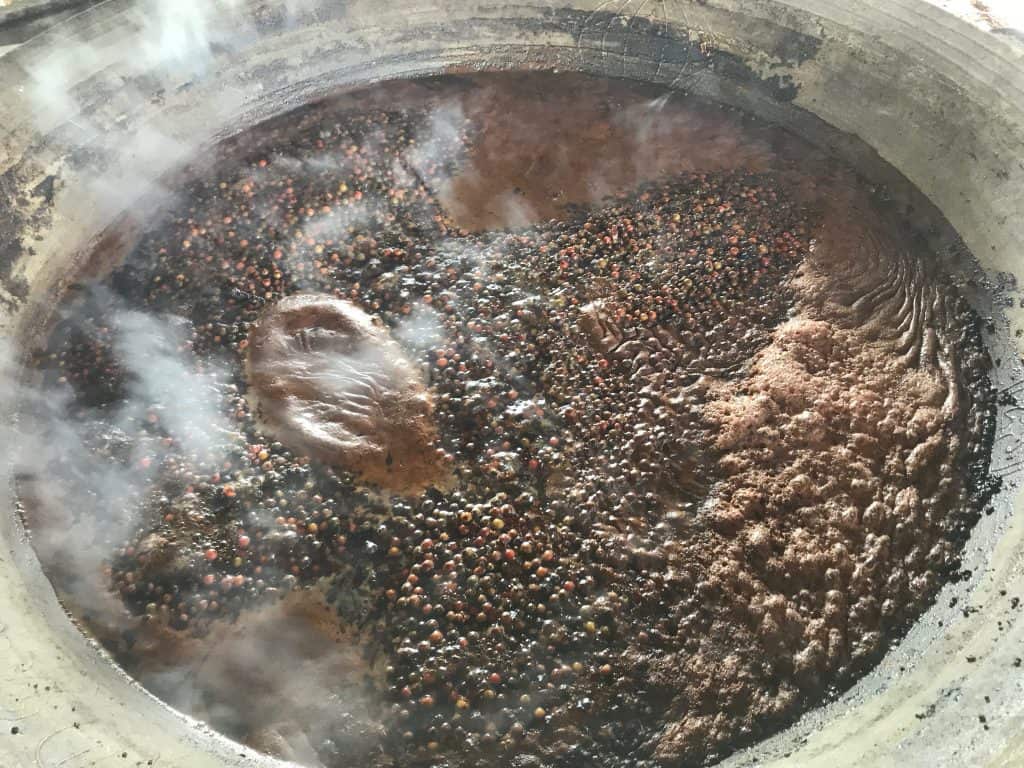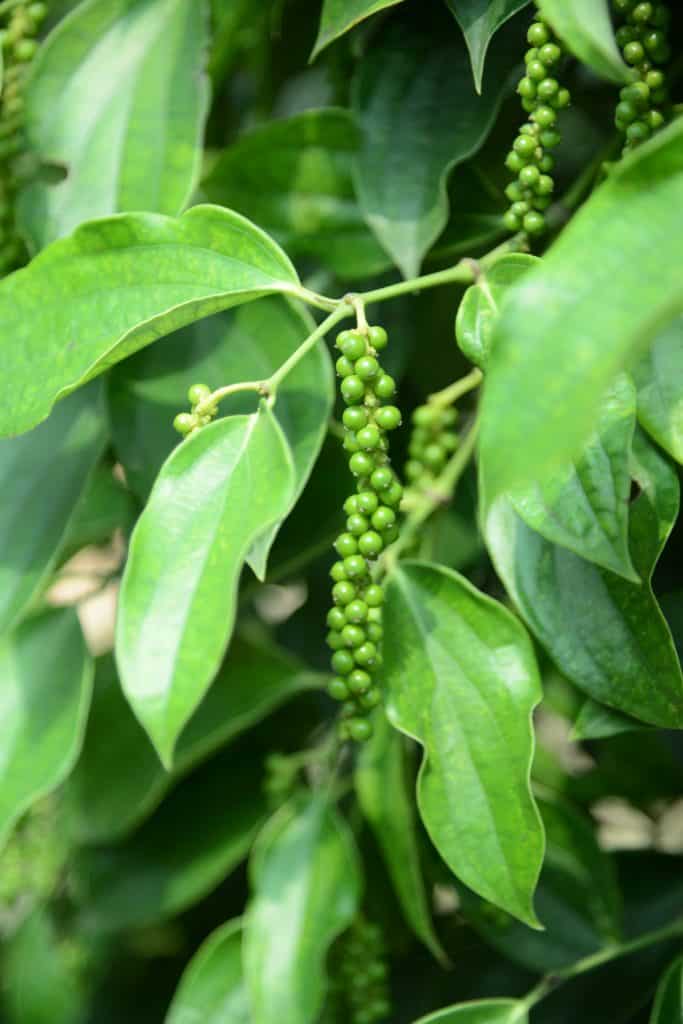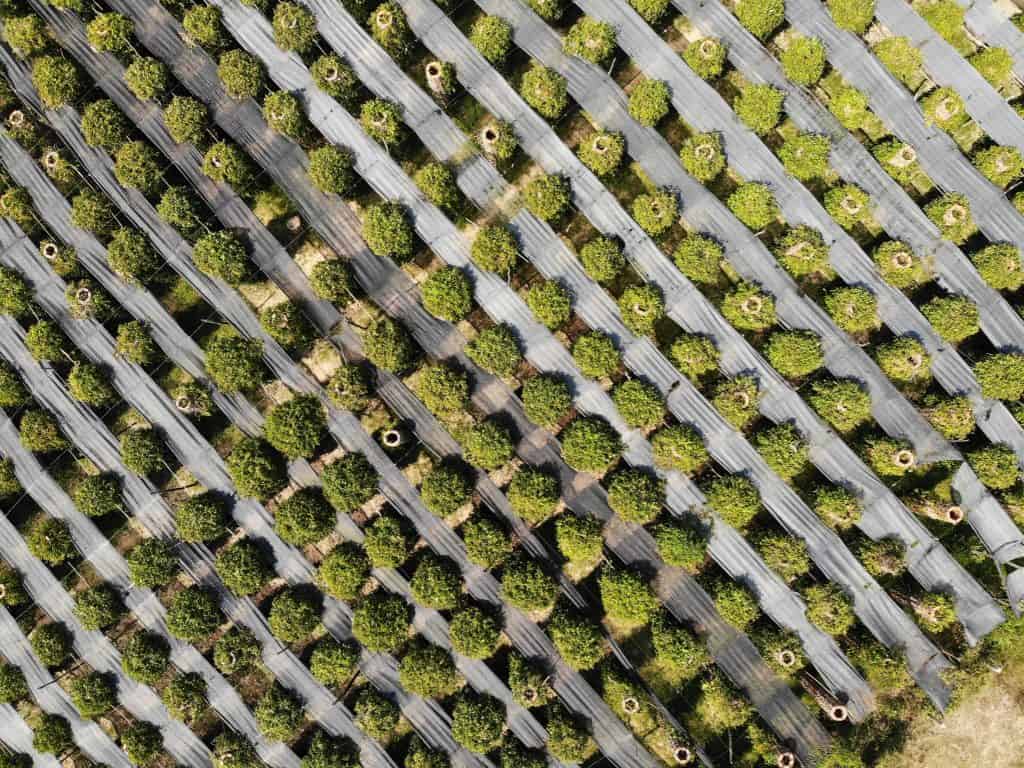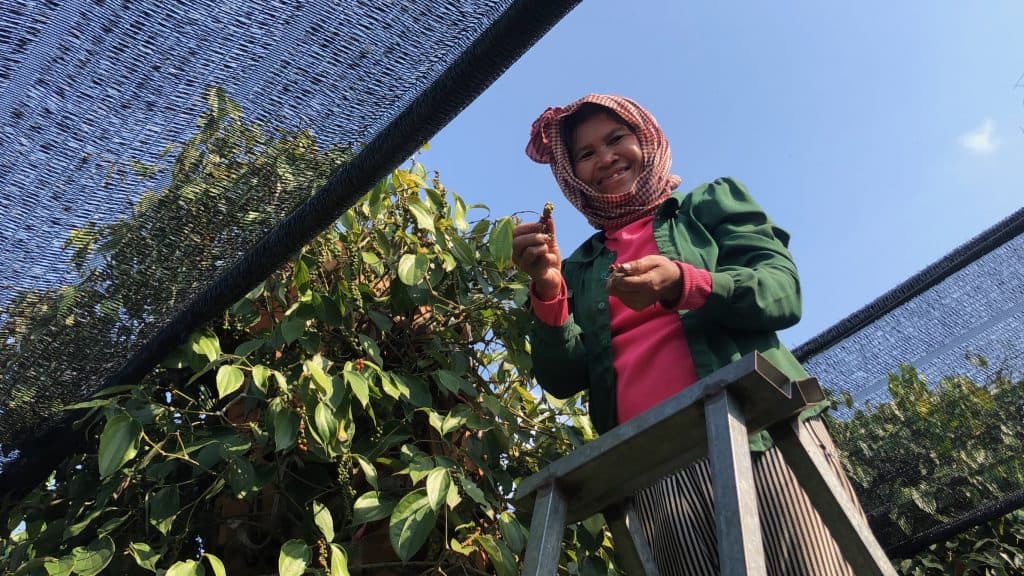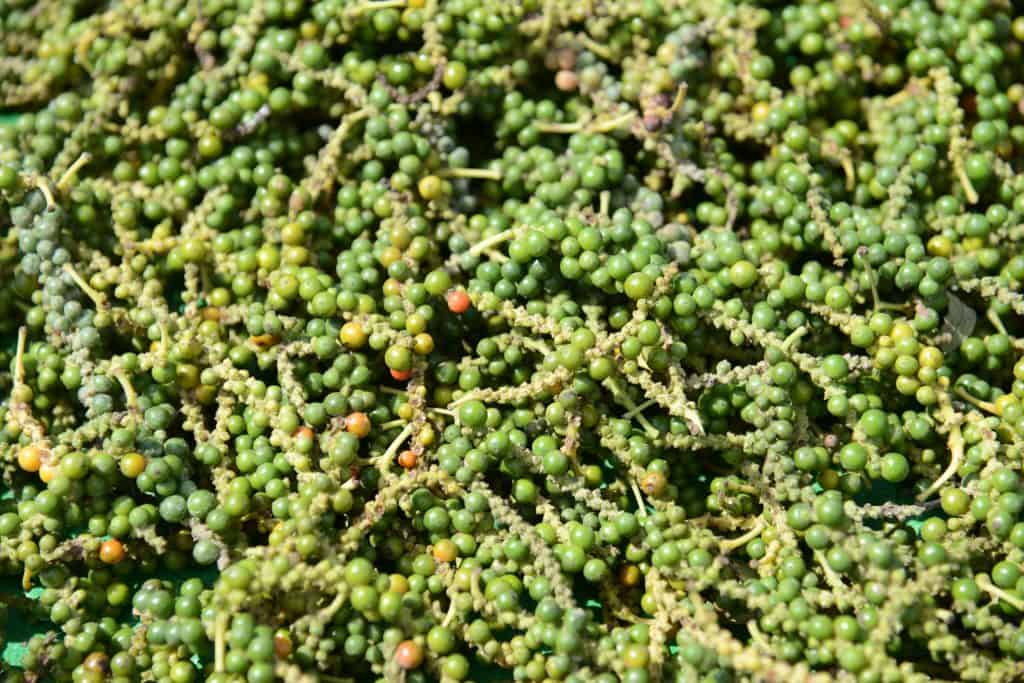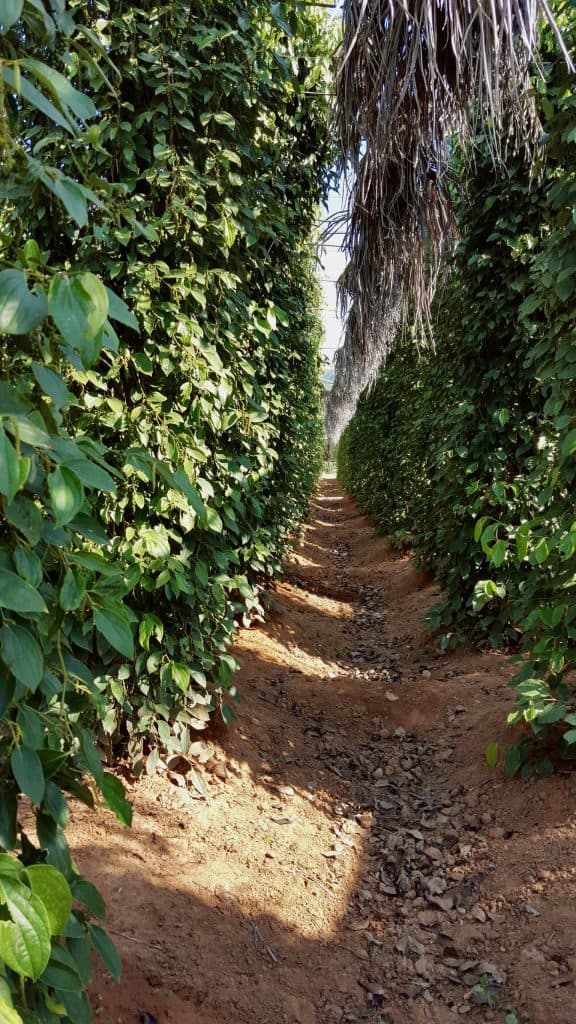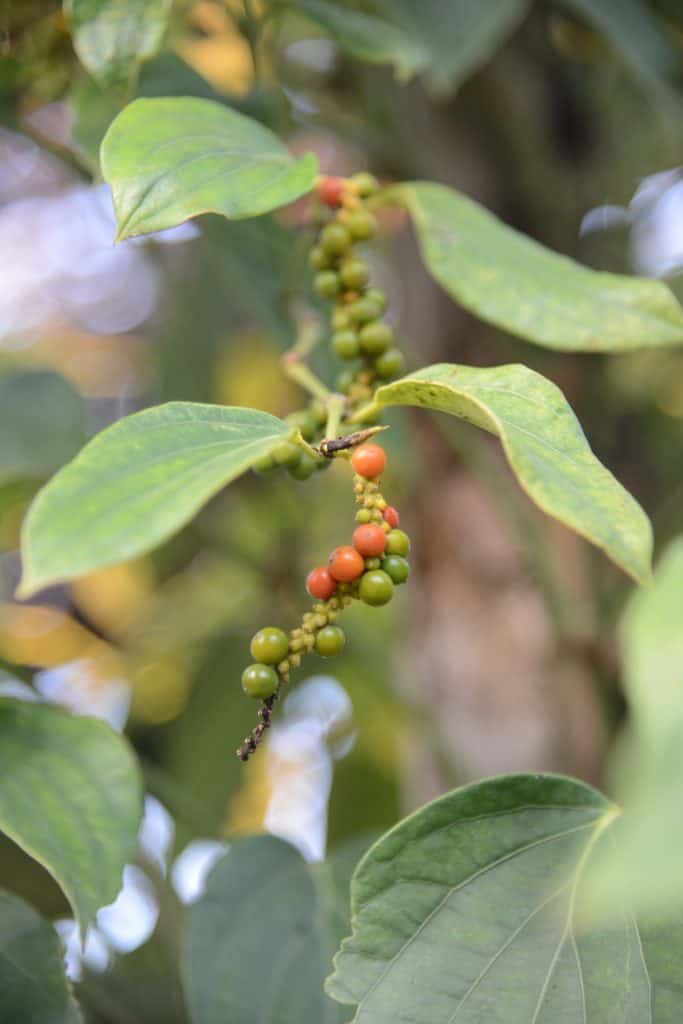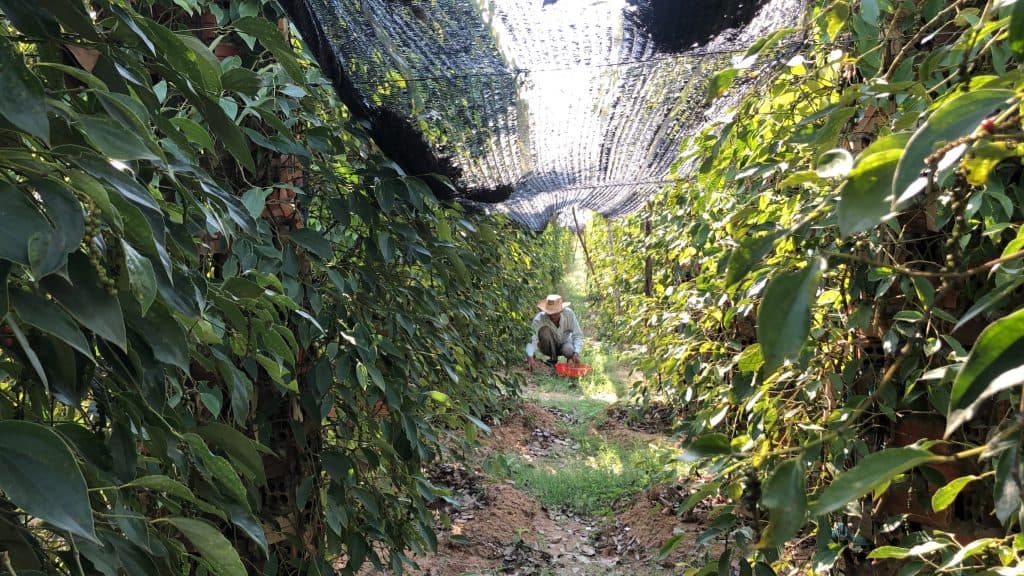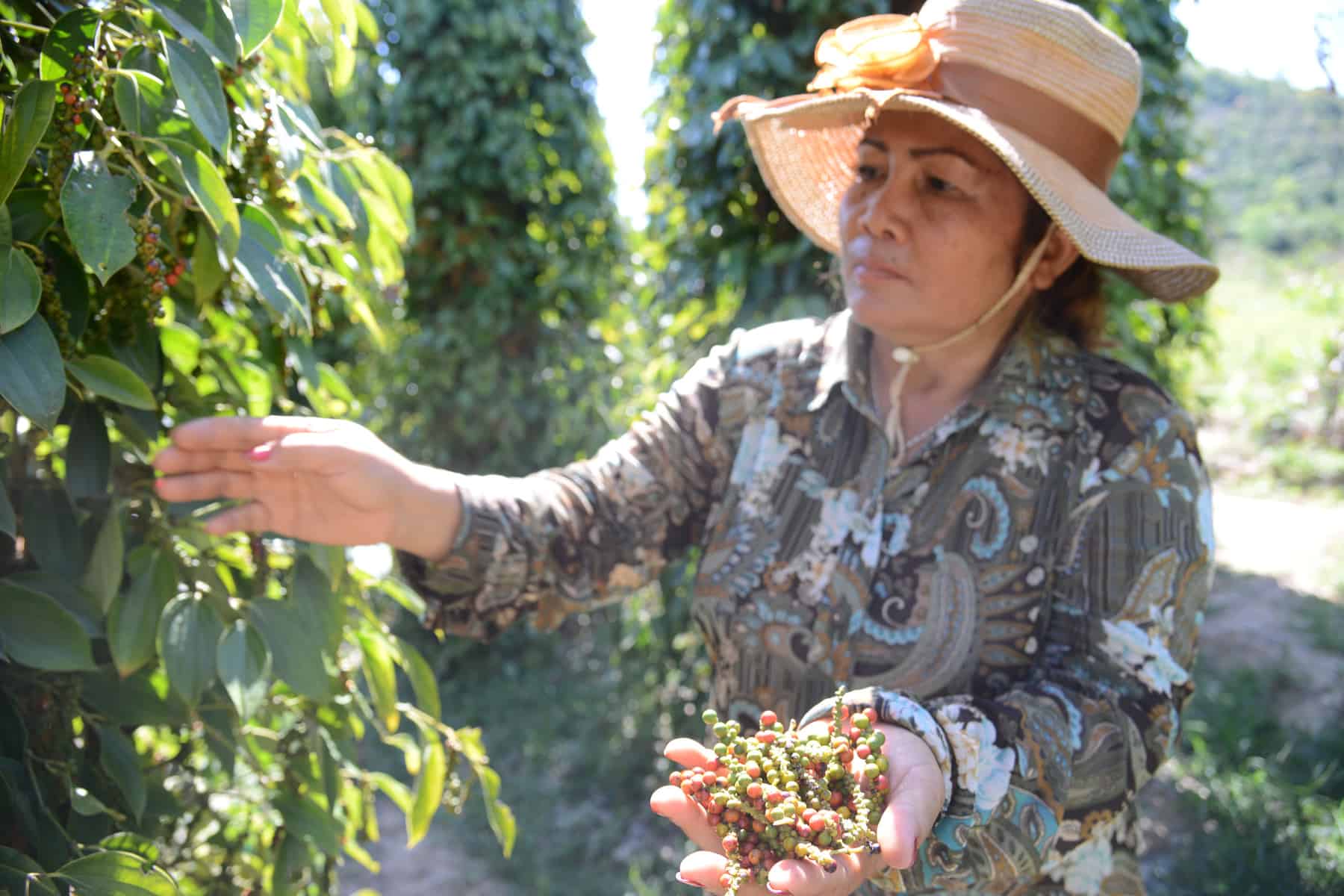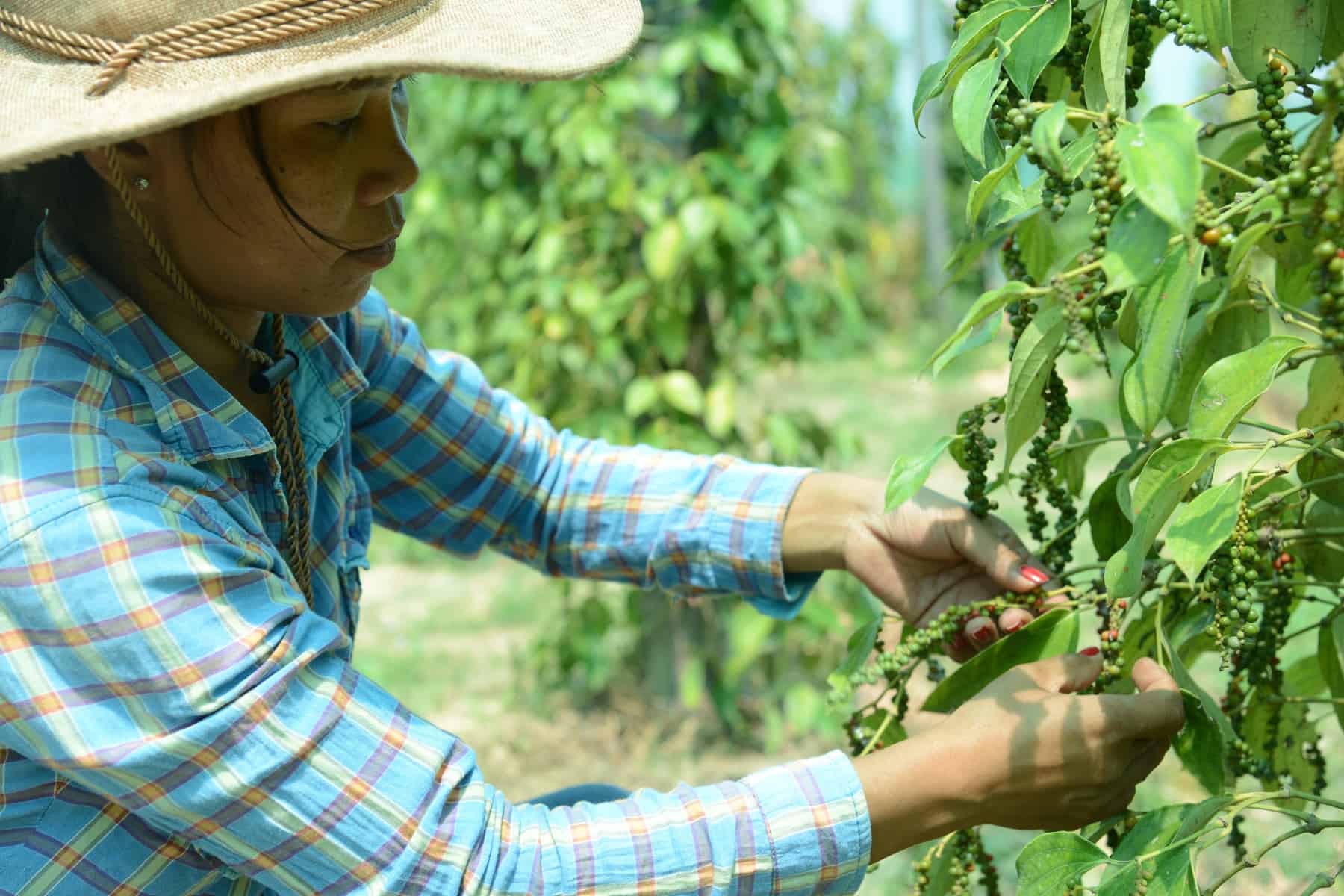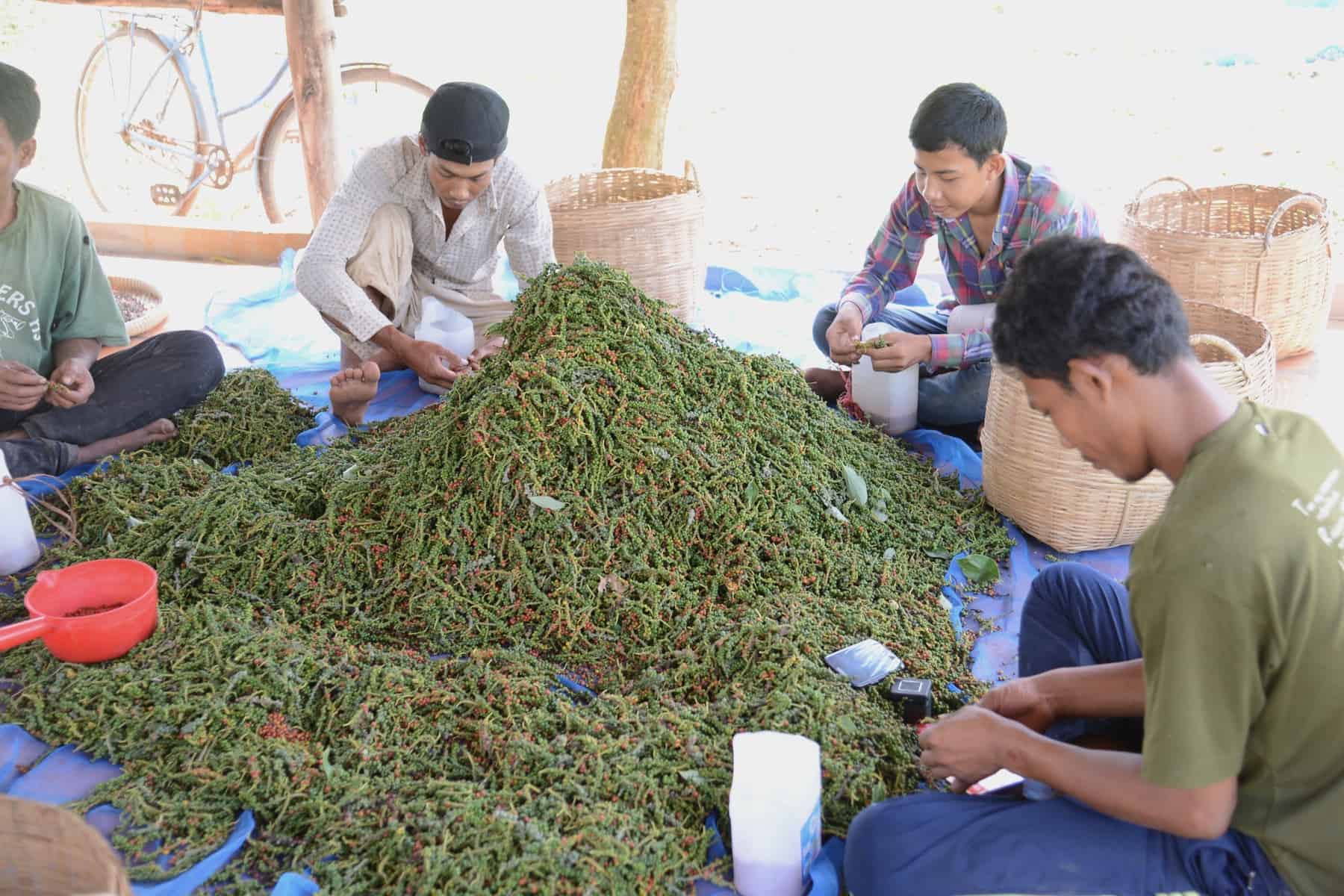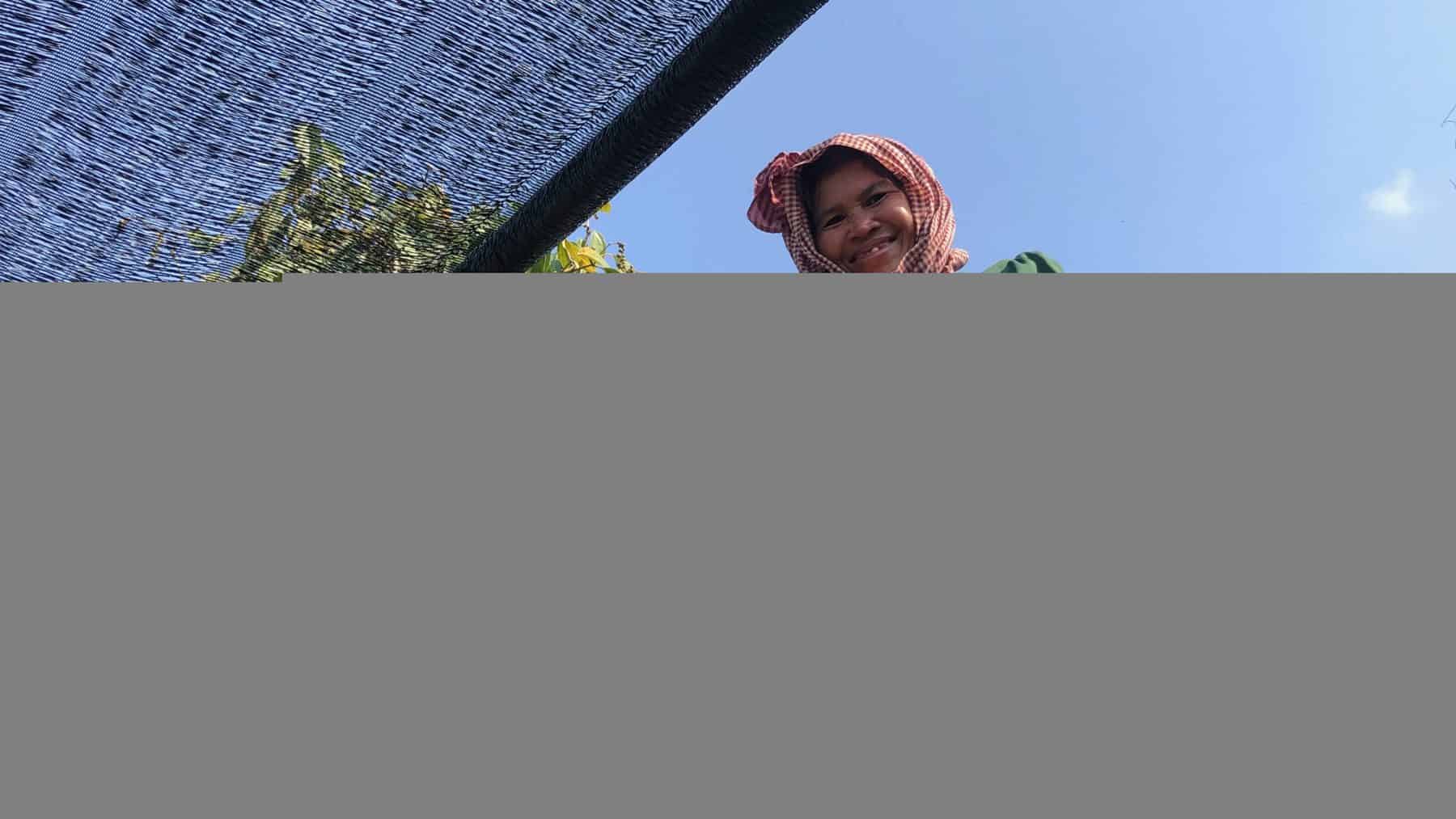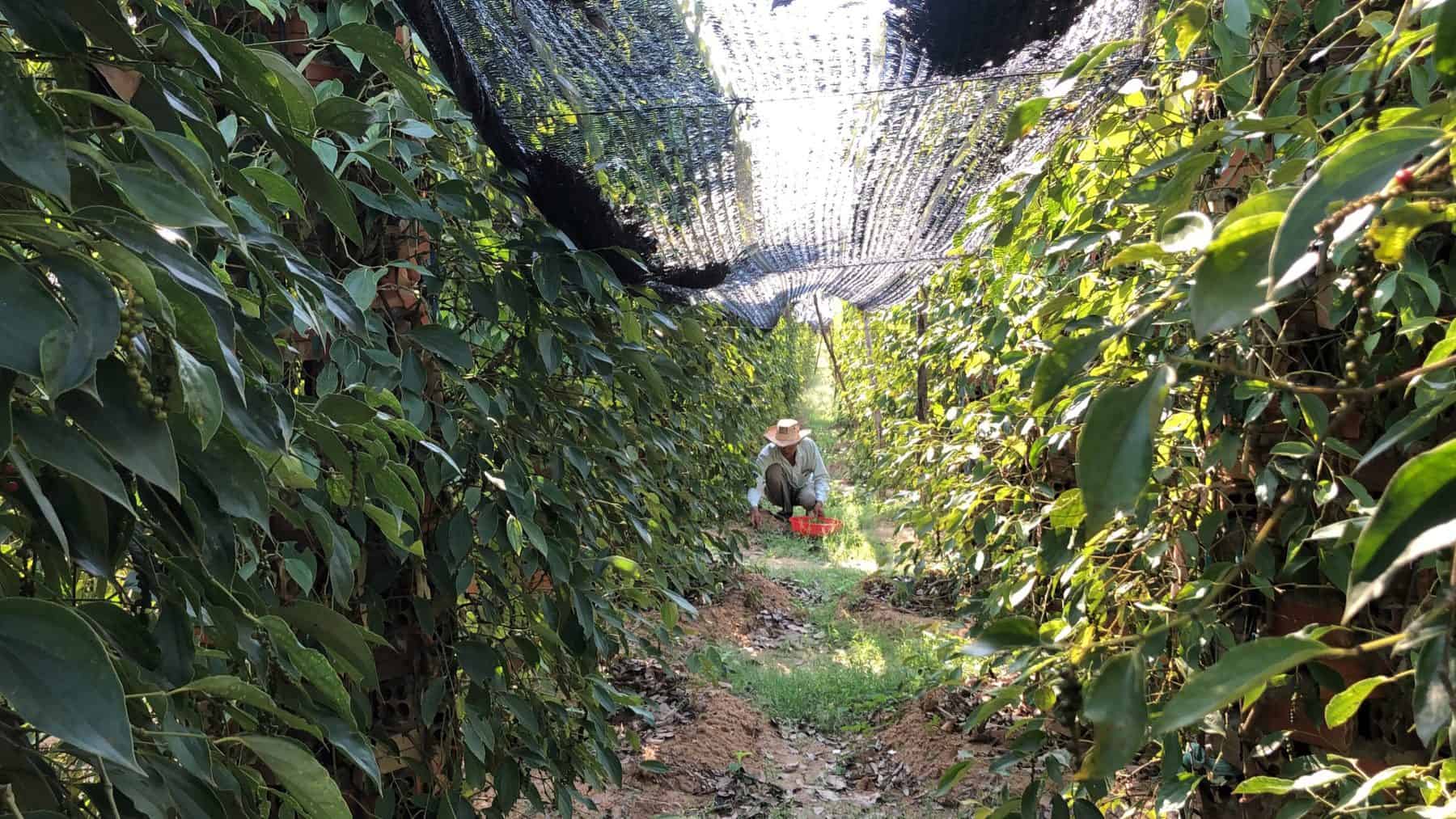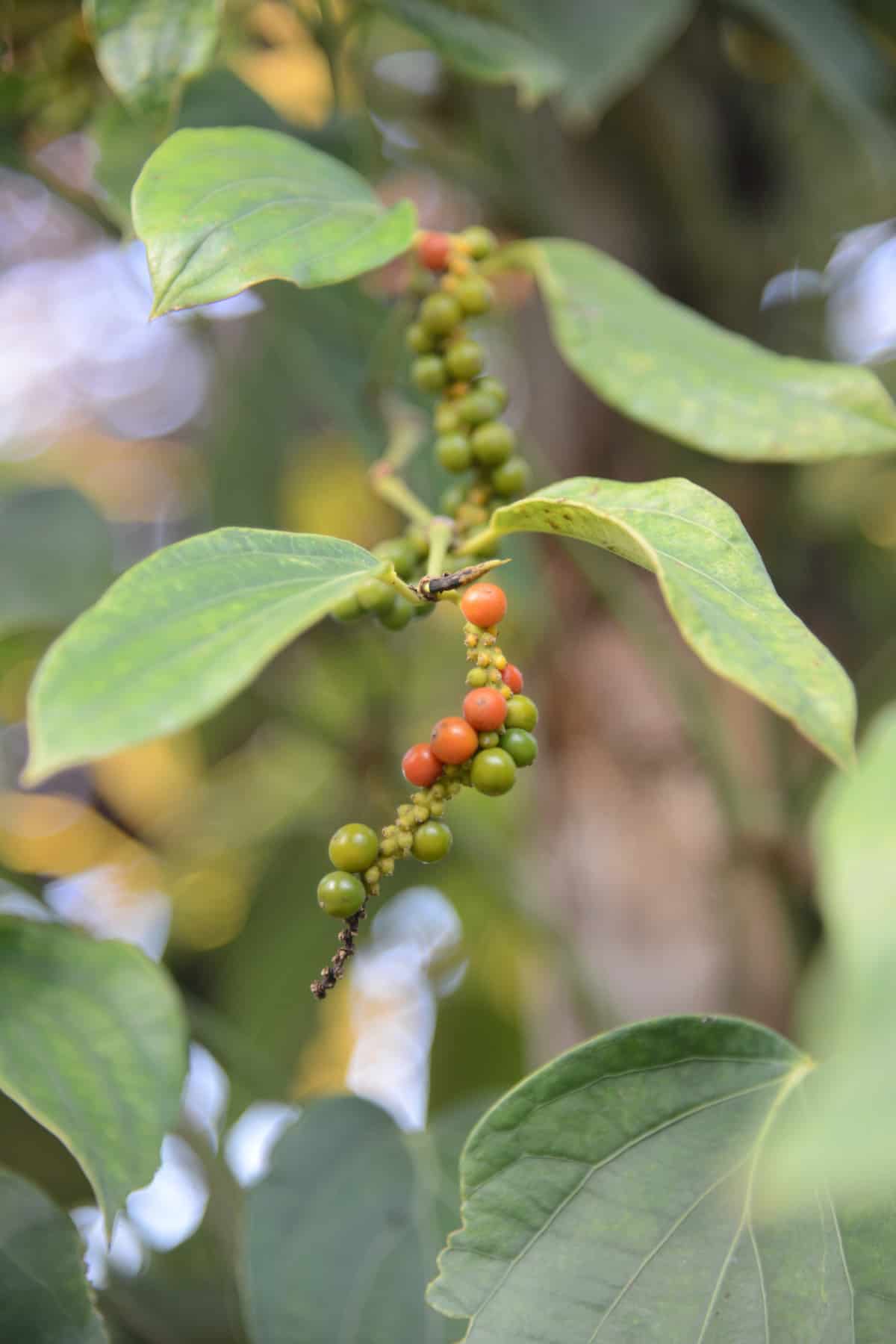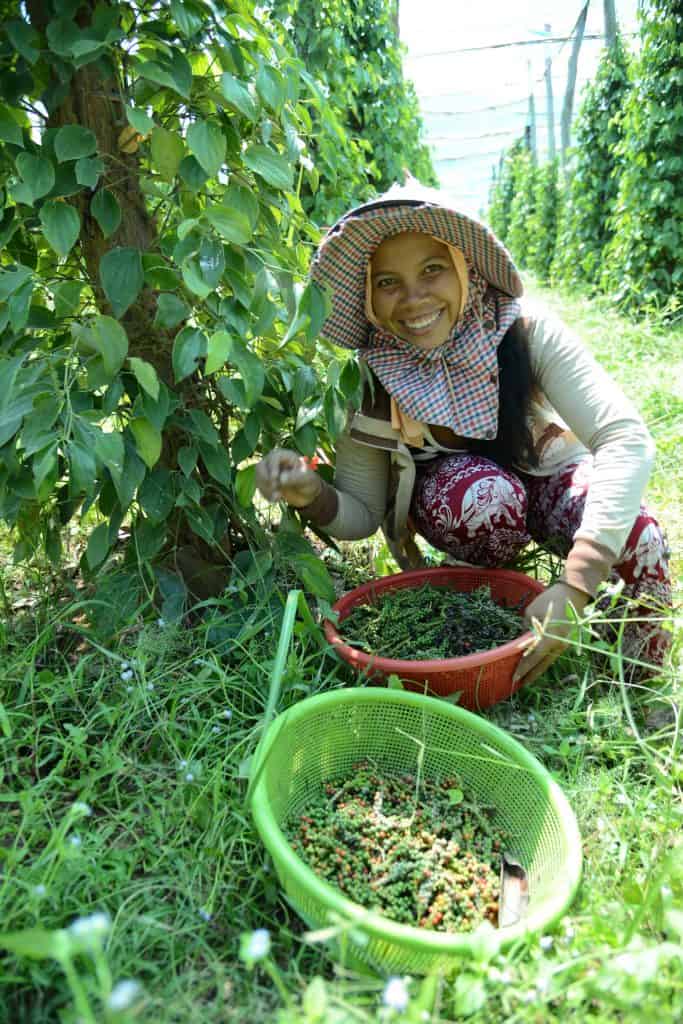Kampot pepper
Bo Tree Farms
family owned, 100% organic farm, on the south coast of Cambodia in the province of Kampot.
Black Pepper
The primary crop on Bo Tree Farm is organic pepper, though they also grow a variety of fruit including mango, jackfruit, mangosteen, durian, coconut palms and rambutan. They also grow turmeric and ginger, the former being a notable health food that, when taken together with pepper, becomes even more valuable to the human body.
Kampot is renowned for the very high quality of its pepper where the best soil, climate and hydrology conditions converge to provide an ideal growing environment. As a result, Kampot Pepper is the only pepper in the world to have attained Protected Geographic Indication (PGI), similar to Champagne, Cognac, Parma Ham or Stilton Cheese. The PGI status was ratified by the European Union on 18 February 2016.
Kampot pepper is grown in a small mountainous area of southern Cambodia, straddling the provinces of Kampot and Kep. In this region, the “terroir” – the unique combination of climate, soil hydrology and know how – is ideal for producing one of the finest peppers in the world.
Enriching Traditions
Pepper growing in Kampot has a history pre-dating even the ancient civilizations of the Angkor Empire. Production reached its zenith during the French colonial era in the early to mid-20th century when up to 8,000 tons per year were produced and exported to France. However, during the Khmer Rouge period of control during the 1970s, the industry was all but terminated when farmers were forced to grow rice, and the pepper plantations were abandoned to the forest. As peace returned to Cambodia in the early 1990s, pepper farming families started trickling back to their ancestral lands to begin rebuilding their ancient craft, assisted by development organizations.
Nowadays, the exceptional quality of Kampot pepper is once again being discovered by the world helping to lift Kampot’s traditional pepper farmers out of poverty. Kampot pepper has now become the first pepper in the world to be awarded Protected Geographic Indication (PGI) by the European Union, a certification that recognizes products of exceptional quality that can only be produced in a designated region.
Kampot Pepper’s PGI Book of Specification requires that, for pepper to be called Kampot Pepper, it must be grown 100% organically, prohibiting the use of chemical fertilizers or pesticides, and must be produced from one of only two piper nigrum sub species, Kamchay and Lampong (or Belantoeung), known locally as big leaf or small leaf pepper.
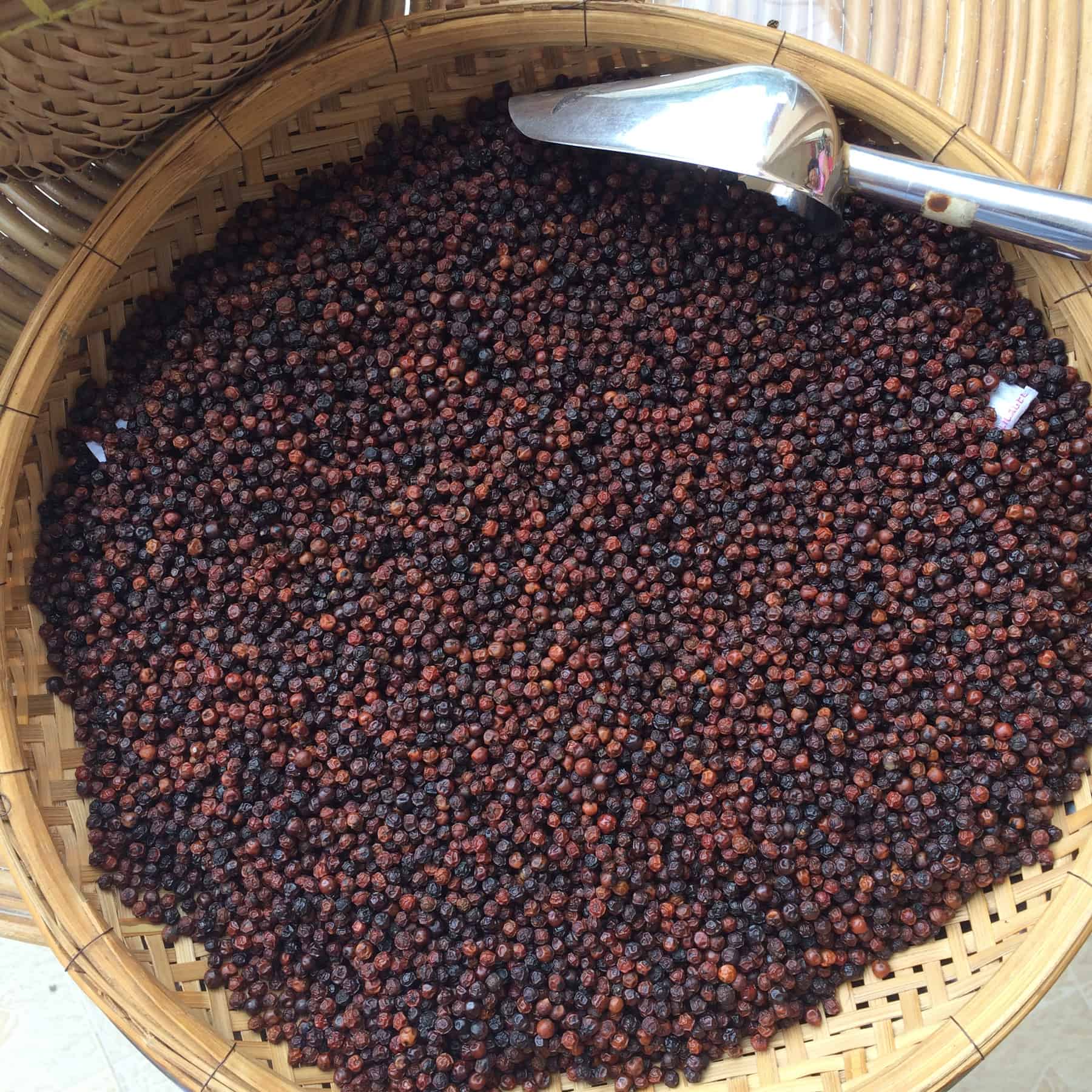
Bo Tree Farm is a family owned, 100% organic farm, on the south coast of Cambodia in the province of Kampot.
Sustainable
Sustainability at its peak -crops irrigated using collected rainwater, hand harvested, 100% organic fertilization process, & zero pesticides.
Pepper requires constant watering and fertilizing during the long dry months from November until May and, with a changing climate, often during the traditionally wet months of June to October too. The watering is all done by hand, enabling the workers to individually assess the health of the “tree” as they progress through the planation. Organic fertilizers are added as needed via a hole in the soil close to the root system. Periodically, fresh topsoil is also added around the plants.
Irrigation water on Bo Tree Farm comes from ponds built to collect water during the rainy season. When they run dry, typically in late February or early March, we resort to ground water from 6 wells drilled around the farm. To date this supply has been sufficient however, in emergency, water can be trucked from a man-made lake, known as the Secret Lake, a few kilometers away.
Fertilizers are all 100% organic and produced on our farm using cow dung, bat guano, rice paddy crabs and fish heads mixed with grasses, leaves and other humus. Pesticides are made by traditional means using the leaves of locally growing trees that have an insect repelling quality. Much of knowledge required has been passed down from generation to generation. Lemongrass planted between the pepper blocks also helps to deter some predators.
Global Transparency
Certified by International Organization
All of Bo Tree Farm’s genuine Kampot Pepper is certified by several official bodies, governments and organizations around the world. Their farm is regularly inspected to ensure we meet the highest criteria for quality Kampot Pepper production.


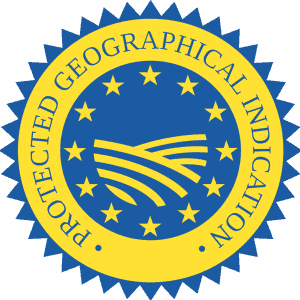
Cambodian Government Global Indication
Kampot Pepper was first awarded protected geographical indication, a status recognizing the product as unique and special, by the Cambodian Government in 2010.
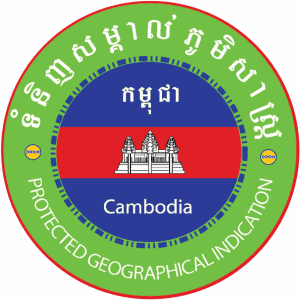
European Union Geographical IndicationKampot Pepper is GI certified by the EU, the same body that certifies Champagne and other geographic-specific products in Europe and worldwide.
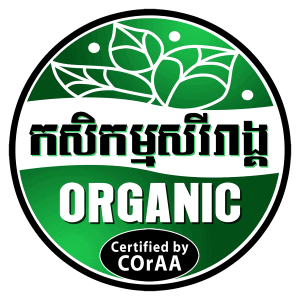
COrAA
The Cambodian Organic Agriculture Association test and certify the land where BoTree farm lies. They have our organic certification covering the 2020/2021 harvest.
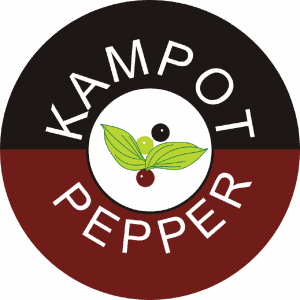
Kampot Pepper Promotion Association (KPPA)The KPPA is the organisation that regulates, controls and certifies Kampot Pepper production.

